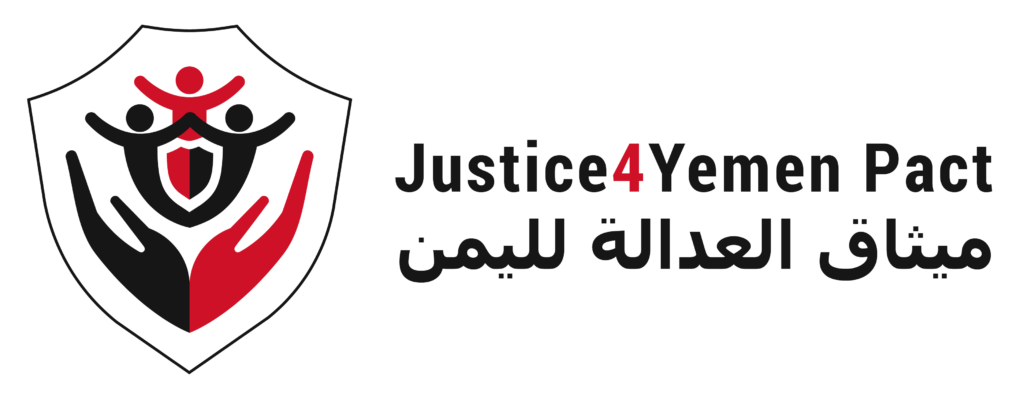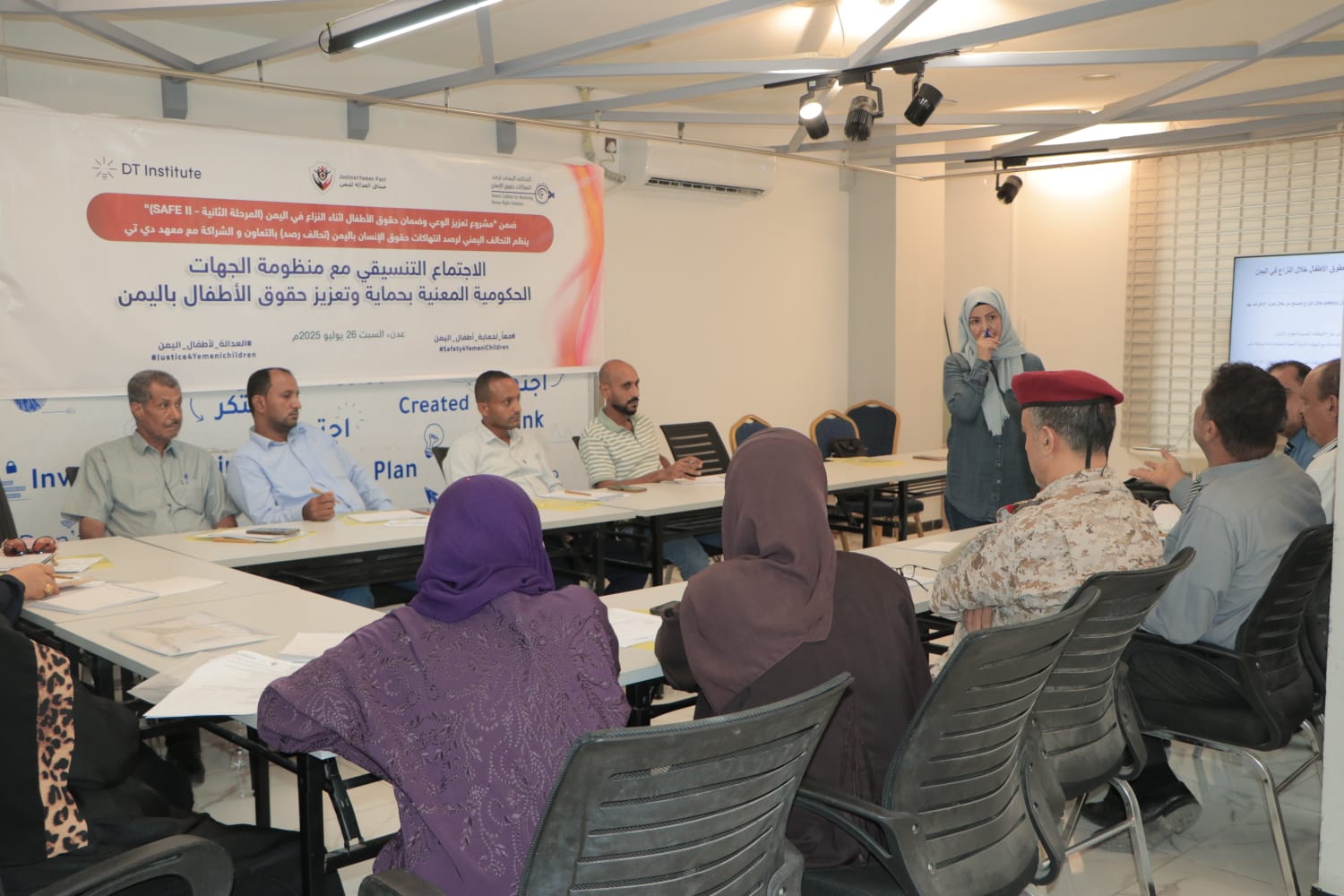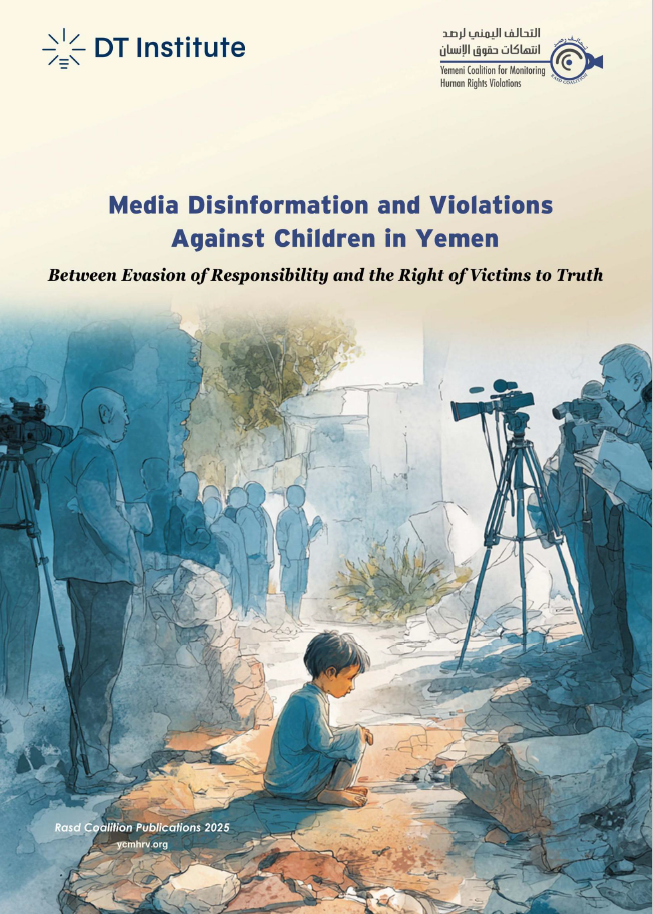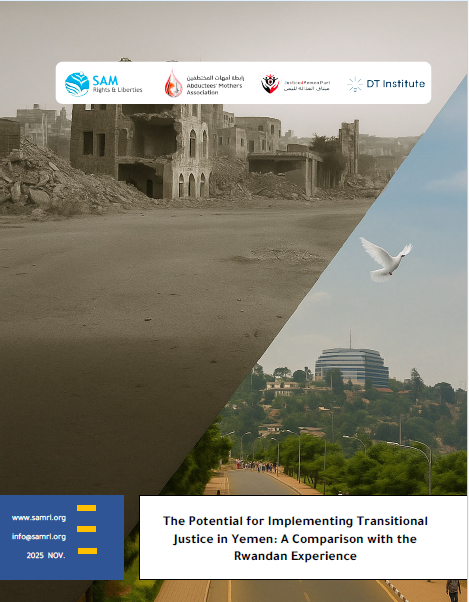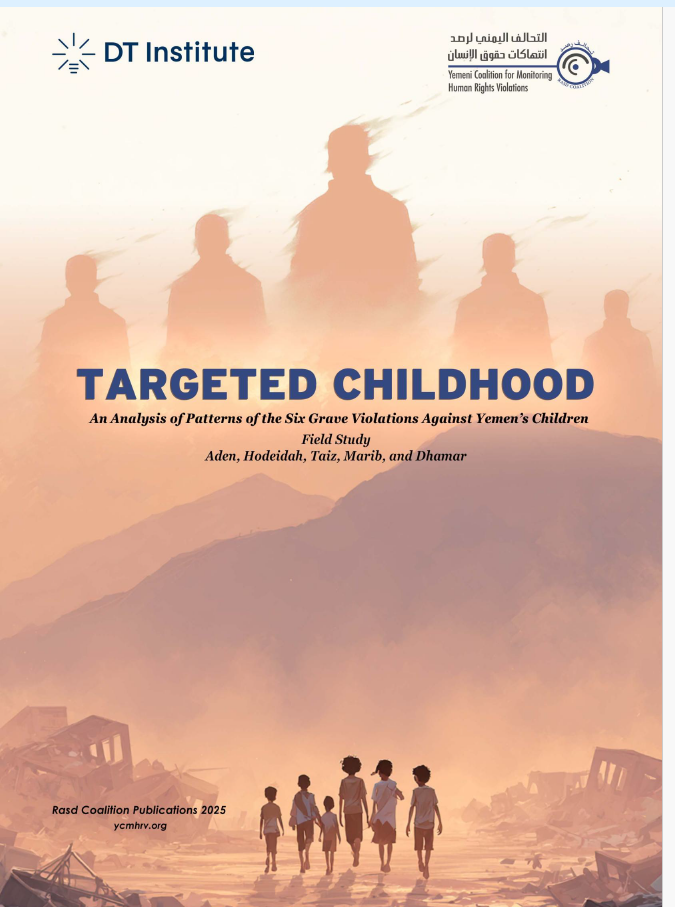As part of its commitment to monitoring the implementation of child rights-related recommendations under the Universal Periodic Review (UPR)—which the Yemeni government has formally accepted—Yemeni Coalition for Monitoring Human Rights Violations convened a coordination meeting in Aden with key government stakeholders. This event is part of the SAFE II project, supported by DT Institute, aimed at enhancing protection mechanisms for children affected by armed conflict in Yemen.
The meeting brought together representatives from essential government institutions concerned with child protection, including the Office of the Public Prosecutor, the Ministry of Legal and Human Rights Affairs, the Juvenile Court and Prosecutor’s Office, the Ministry of Justice, the Ministry of Public Health and Population, and the Ministry of Education. Also present were representatives from the Ministry of Defense and the Ministry of Interior. These participants presented their current efforts, coordination initiatives, and progress made in implementing UPR recommendations related to child protection.
Government bodies shared several ongoing initiatives, such as activation of Family Protection Units across districts to receive and document reports of child rights violations, in coordination with the Ministries of Health and Human Rights. Female police officers have been deployed to provide safer, gender-sensitive environments. The Ministry of Defense highlighted the creation of 80 child protection contact points and its participation in technical committees aimed at preventing child recruitment. The Public Prosecutor’s Office confirmed it operates a specialized division focused on women and children’s cases, while the Juvenile Justice system introduced its project focused on child-friendly procedures and data systems, supported by the Ministry of Justice’s protection network, which works across ministries and with the security sector.
Despite these ongoing efforts, the discussions emphasized that current measures remain insufficient to address the scale of violations occurring on the ground. Ongoing challenges include child recruitment, sexual violence, militarization of schools, weak documentation systems, lack of unified national data, legal gaps, and limited awareness among local authorities and detention centers. These issues are exacerbated by difficult economic conditions, which increase the risks of child labor and exploitation.
To address these gaps, the meeting concluded with a set of key recommendations:
- Establishing a joint coordination mechanism between government institutions and civil society to monitor and report child rights violations.
- Scaling up awareness campaigns in schools, neighborhoods, and media outlets to improve community engagement in child protection.
- Reforming national legislation to enforce stricter penalties for child rights violations, particularly in cases of recruitment and abuse.
- Enhancing data collection and training professionals involved in child protection and justice systems.
- Developing a comprehensive national child protection vision, with a focus on legal assistance and psychosocial support for children affected by conflict.
This meeting represents a critical first step in a broader series of coordination efforts, follow-ups, and national-level activities that project partners will lead in the coming period. These efforts aim to transform recommendations into tangible outcomes that ensure the protection and fulfillment of children’s rights across Yemen, in line with national obligations and international standards.

